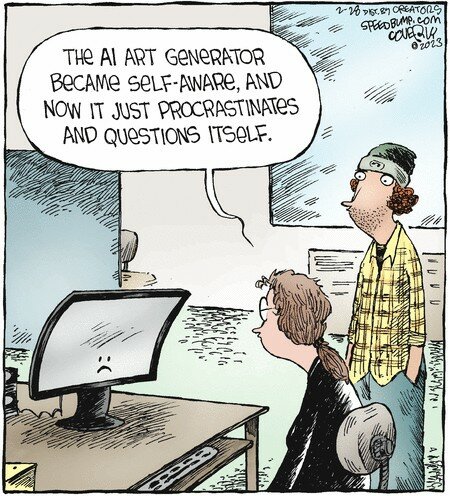[
it is not art in the sense it is a replica of a real art-piece.
Then that means that a human painted copy of the Mona Lisa, no matter how skillful, is also not art. Also implies that a painting made from a photo is not art.
Correct for the first argument, they are also referred to as replicas. Most traditionally trained artists make replicas of other artists paintings. It is rare these days, but I have seen art-students sit with an easel and paintbrushes making a replica of a painting inside a museum. Making almost exact copies of paintings. It is usually an assignment and the people doing it see it as a learning point rather then a piece of art. It is often upgraded to art when it is signed with their own signature and is re-discovered when they are long dead and they became famous after making other work.
Wrong on the second argument: A painting made of a photo is a piece of art. Nobody is going to make an exact replica of a photograph. (There are people who can do this, but still we would call it a piece of art.) A trained artist will interpret the photo and will give his view of that photo through the painting.
Can a computer do the same? In practice yes, you can feed a photo to a computer (stable diffusion is one such algorithm) and it will give you an interpretation of it. But also no, because the computer does also need to be fed the textual context( called prompts) of what you want to get out of it. You can tell a human " go make a painting of this painting" and it will get you a result, the computer can not go and find the painting in a museum, take a picture of it, upload it to the algorithm and then instruct itself to make a painting of it based on it own experiences and preferences, because it has none... Everything the algorithm is learned or trained on, is all based on human biases..Everything has been spoonfed into it. Everything that comes out is just a blend of everything that has been made before. There is nothing that goes: What if? And then acts on that impulse, that is what makes us unique and the result of that impulse is that makes art art.
*gets off the soapbox*





